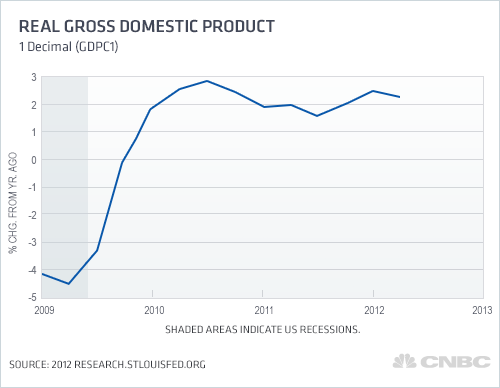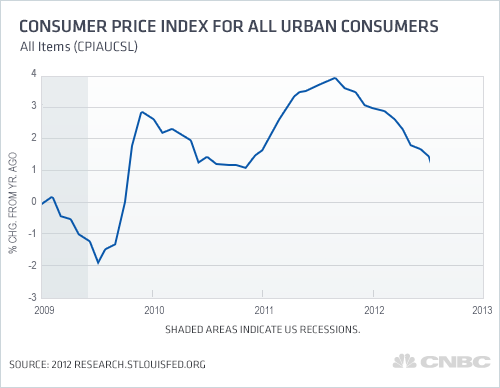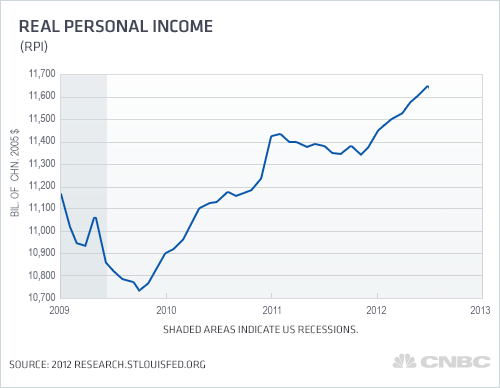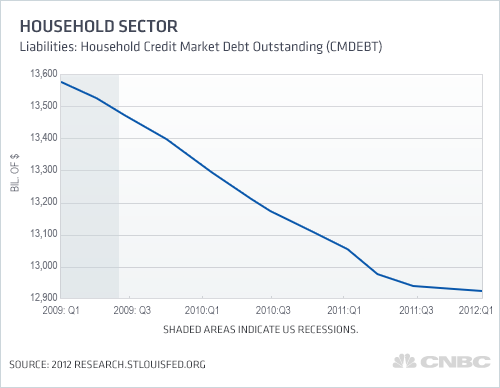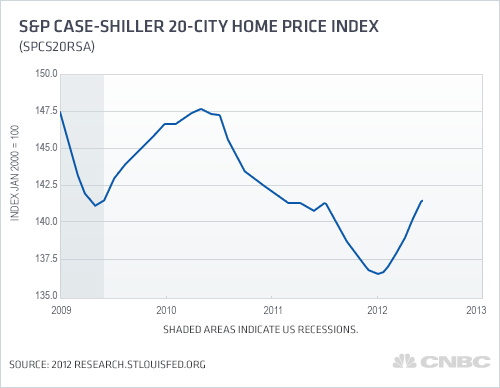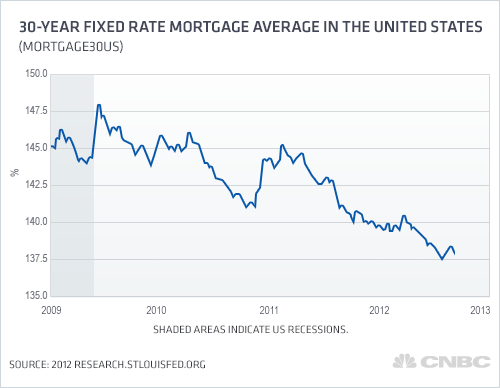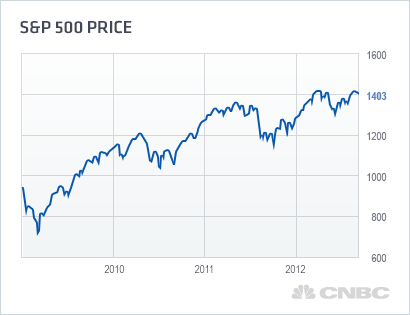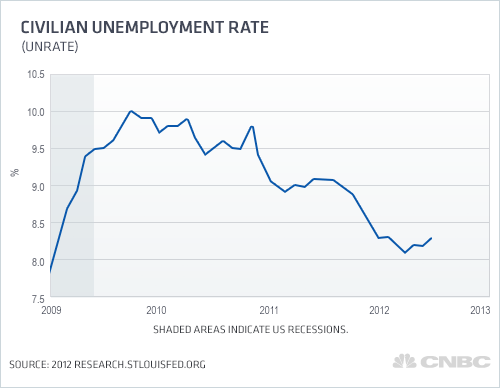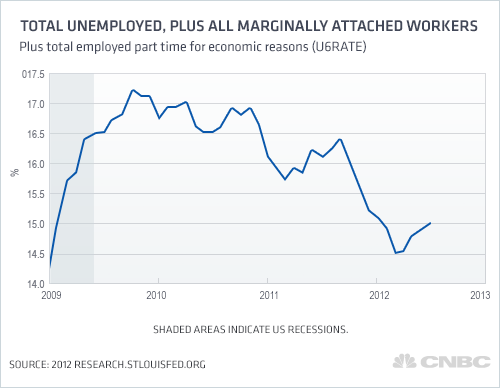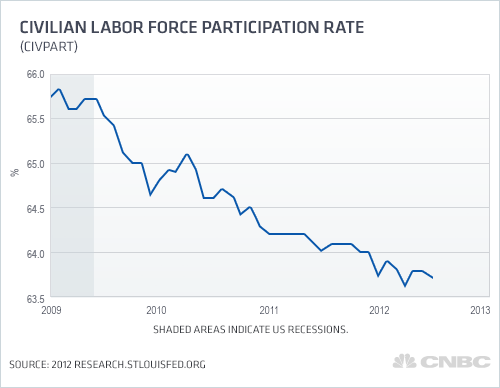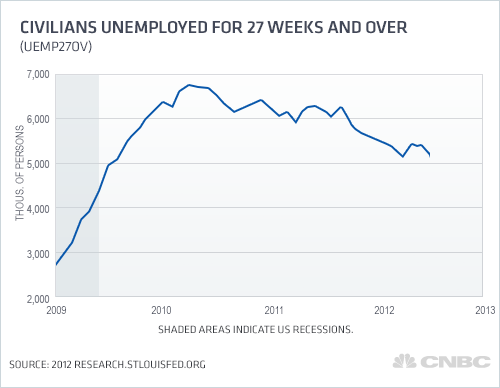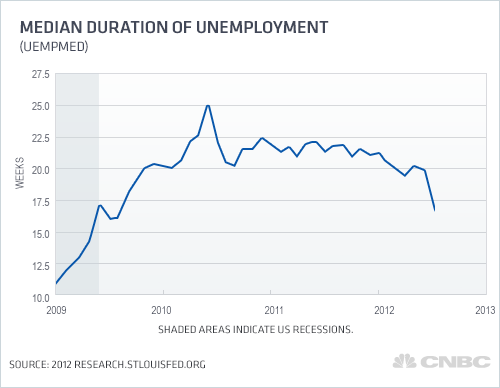Ronald Reagan, in his closing remarks in a debate against Jimmy Carter just days before the
1980 election, famously suggested that voters ask themselves a series of questions when they get to their polling place:
"I think when you make that decision, it might be well if you would ask yourself, are you better off than you were four years ago? Is it easier for you to go and buy things in the stores than it was four years ago? Is there more or less unemployment in the country than there was four years ago? Is America as respected throughout the world as it was?”
As he accepted the Republican Party’s nomination for president last week, Gov. Mitt Romney charged that President Obama had failed the Reagan test. “This president can ask us to be patient, Romney said of Obama. “This president can tell us it was someone else's fault. This president can tell us that the next four years he'll get it right. But this president cannot tell us that you are better off today than when he took office.”
Romney’s running mate, Rep. Paul Ryan of Wisconsin, said Monday that, “The president can say a lot of things, and he will, but he can’t tell you that you’re better off. Simply put, the Jimmy Carter years look like the good old days compared to where we are right now.”
Is the Reagan test the right one for voters to use in judging Obama’s performance? In a blog post, liberal economist Dean Baker of the Center for Economic and Policy Research wrote that the question is now pointless: “Suppose your house is on fire and the firefighters race to the scene. They set up their hoses and start spraying water on the blaze as quickly as possible.
After the fire is put out, the courageous news reporter on the scene asks the chief firefighter, ‘is the house in better shape than when you got here?’”
But as they convene in Charlotte this week, the Democrats are trying to make a different argument. After Obama surrogates flubbed their answers to the question on Sunday talk shows, Vice President Joe Biden gave it a shot. “You want to know whether we're better off?" Biden told a crowd in Detroit on Monday. "I've got a little bumper sticker for you: Osama bin Laden is dead and General Motors is alive."
As the politicians parry and thrust, voters will, of course, decide for themselves. The economy clearly isn’t firing on all cylinders, but are Americans better or worse off than they had been when Obama took office? Overall, the economic data paint a decidedly mixed picture:
Real Gross Domestic Product, Personal Income
After plunging sharply during the recession, real gross domestic product has rebounded but remains anemic:
Inflation, including volatile food and energy prices, remains tame, though it’s higher than the recessionary levels it was at in 2009:
Real (inflation-adjusted) personal income has climbed above where it was when Obama took office. Surprise! But median household incomes have fallen since the end of the recession in June 2009, according to Sentier Research. "Based on our data, almost every group is worse off now than it was three years ago, with the exception of households with householders 65 years old and over," Sentier's Gordon Green said in a statement released last month.
And household debt levels have come down significantly:
S&P 500, Mortgage Rates
Housing prices have stabilized, but remain well below their bubble-era highs:
While mortgage rates have fallen to historic lows:
And the stock market has soared:
But, the unemployment rate, which hit 10 percent in October 2009, stands at 8.3 percent, still above the 7.8 percent of January 2009:
Total Unemployed, Long-Term Unemployment
And a more comprehensive reading of the labor picture including the underemployed is also significantly higher than it had been:
The labor force participation rate remains near a 30-year low:
And long-term unemployment remains high:
As does the median length of unemployment:



